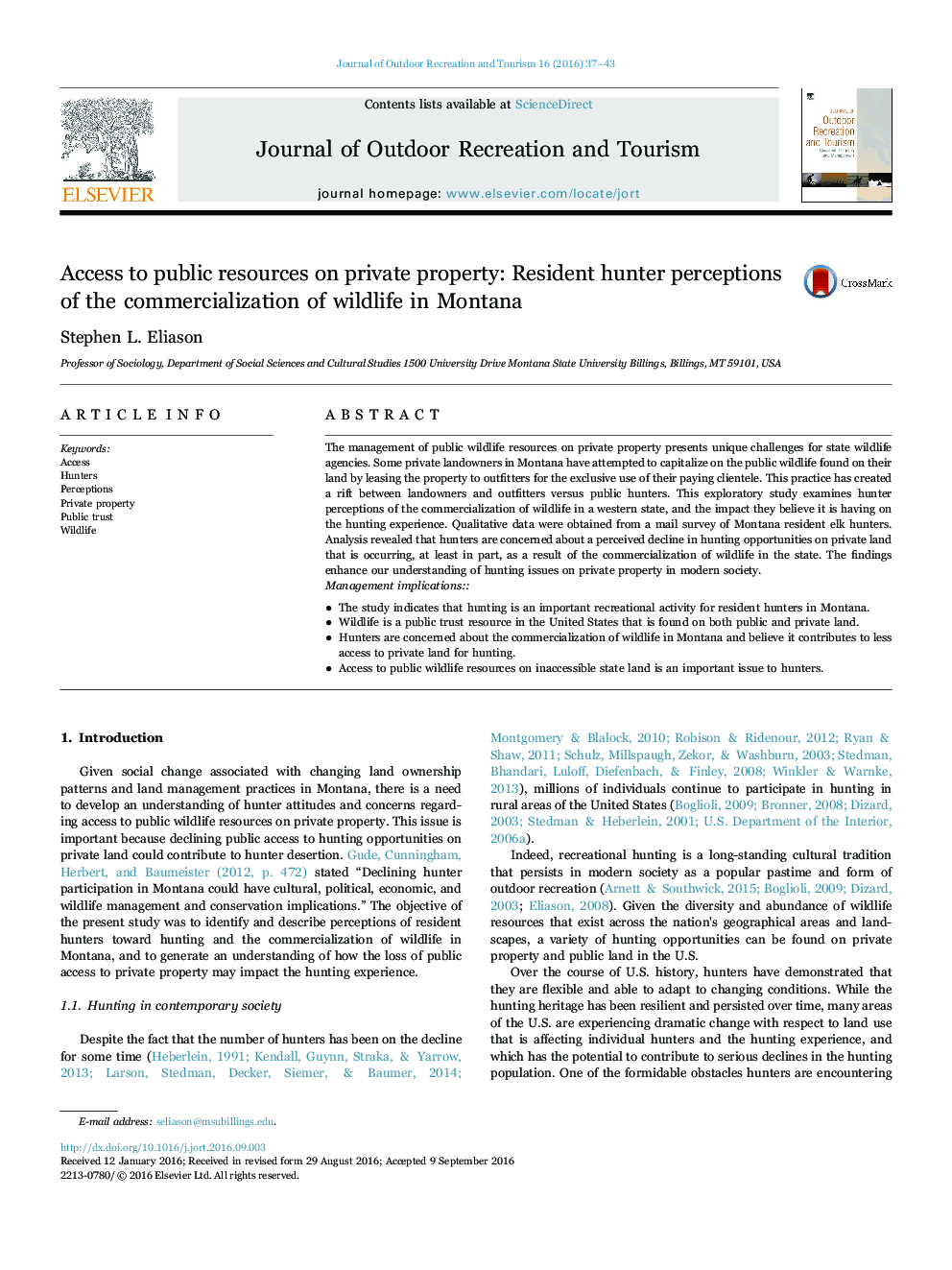| Article ID | Journal | Published Year | Pages | File Type |
|---|---|---|---|---|
| 4759910 | Journal of Outdoor Recreation and Tourism | 2016 | 7 Pages |
Abstract
The management of public wildlife resources on private property presents unique challenges for state wildlife agencies. Some private landowners in Montana have attempted to capitalize on the public wildlife found on their land by leasing the property to outfitters for the exclusive use of their paying clientele. This practice has created a rift between landowners and outfitters versus public hunters. This exploratory study examines hunter perceptions of the commercialization of wildlife in a western state, and the impact they believe it is having on the hunting experience. Qualitative data were obtained from a mail survey of Montana resident elk hunters. Analysis revealed that hunters are concerned about a perceived decline in hunting opportunities on private land that is occurring, at least in part, as a result of the commercialization of wildlife in the state. The findings enhance our understanding of hunting issues on private property in modern society.Management implications:âThe study indicates that hunting is an important recreational activity for resident hunters in Montana.âWildlife is a public trust resource in the United States that is found on both public and private land.âHunters are concerned about the commercialization of wildlife in Montana and believe it contributes to less access to private land for hunting.âAccess to public wildlife resources on inaccessible state land is an important issue to hunters.
Related Topics
Life Sciences
Agricultural and Biological Sciences
Forestry
Authors
Stephen L. Eliason,
